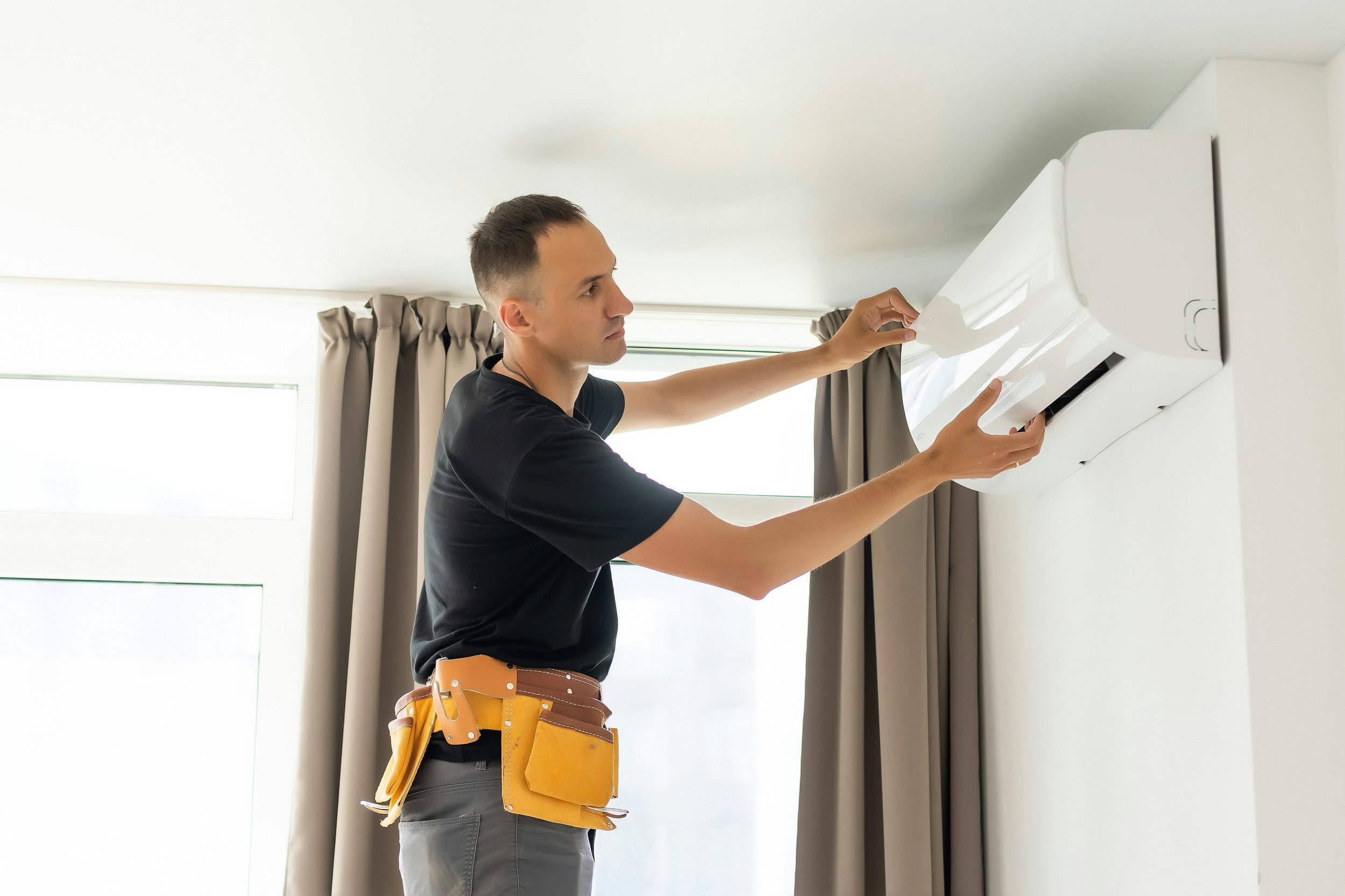10 Tips On Choosing the Right HVAC Contractor
Finding the right HVAC contractor isn’t just about picking someone with good reviews—it’s about ensuring they have the expertise and commitment to handle your system’s unique needs. Here’s a contractor’s insider guide to making the right choice:
1. Licensing Is a Baseline, Not a Bonus
Every legit HVAC contractor should have proper licensing and insurance. But here’s what pros know: check if they’re licensed for your specific type of system.
For instance, working on high-efficiency or smart HVAC systems might require certifications like NATE (North American Technician Excellence) or specialty training for brands like Mitsubishi or Trane. Ask about their experience with your HVAC systems—they’ll respect you more for it.
2. Understand Their Maintenance Philosophy
A good contractor doesn’t just fix problems—they prevent them. Ask how they approach HVAC maintenance. Do they believe in extending system life through proactive tune-ups, or do they focus on reactive repairs? Pros know that consistent care beats costly overhauls. If they’re vague about their maintenance philosophy, it’s a red flag.
3. Ask About Load Calculations—Seriously
Many contractors skip this, but seasoned pros know proper system sizing is essential. An HVAC system isn’t one-size-fits-all; it needs to be tailored to your home’s specific heating and cooling demands. Make sure they’re using standard calculations or specialized softare to calculate your load, instead of just guessing based on square footage.
4. Check How They Handle Ductwork
Efficient ductwork is the backbone of your HVAC system. If your contractor overlooks it, they’re cutting corners. Ask if they’ll assess your duct design, seal leaks, or suggest improvements. The best contractors know ductwork is just as important as the equipment itself when it comes to overall efficiency.
5. Look for a Transparent Pricing Model
Seasoned contractors have no issue laying out costs for parts, labor, and HVAC maintenance plans. Beware of anyone who glosses over potential add-ons or vague “package deals.” Pros know it’s better to have upfront, detailed quotes that avoid nasty surprises later.
6. They Should Know the Latest Tech
Whether it’s smart thermostats, hybrid systems, or advanced air quality solutions, top contractors keep up with the latest HVAC tips and technologies. If they can’t explain why a variable-speed compressor or zoning system might work for your home, it’s a sign they’re not staying ahead of the curve.
7. A Solid Reputation in the Local Community
Ask around and look beyond online reviews. Seasoned contractors build relationships with suppliers, inspectors, and other tradespeople in your area. A local reputation for reliability is worth its weight in gold.
8. Post-Installation Follow-Up
What sets the pros apart? Their commitment doesn’t stop after the install. Do they offer check-ins, post-installation inspections, or free tune-ups within the first year? A great contractor who’s in it for the long haul will always ensure your system performs as promised.
9. Emergency Services Aren’t an Afterthought
Experienced contractors know HVAC systems don’t break down on a schedule. A good company will have 24/7 emergency services or at least a reliable response plan for after-hours issues. Check if their service extends beyond the typical 9-to-5.
10. Their Portfolio Speaks for Itself
Photos of clean installs, detailed case studies, or even testimonials from long-time clients are signs of a contractor who takes pride in their work. Ask to see examples of similar projects—they’ll gladly show off the jobs they’re proud of.
Call the Pros Who Know
Choosing the right HVAC contractor is about trust, expertise, and long-term commitment. The best in the business will go beyond quick fixes, delivering HVAC maintenance and system upgrades that keep your home efficient and comfortable year-round.
Need a contractor who ticks all these boxes?
Let Tango Home Renovations show you what seasoned HVAC expertise looks like.


